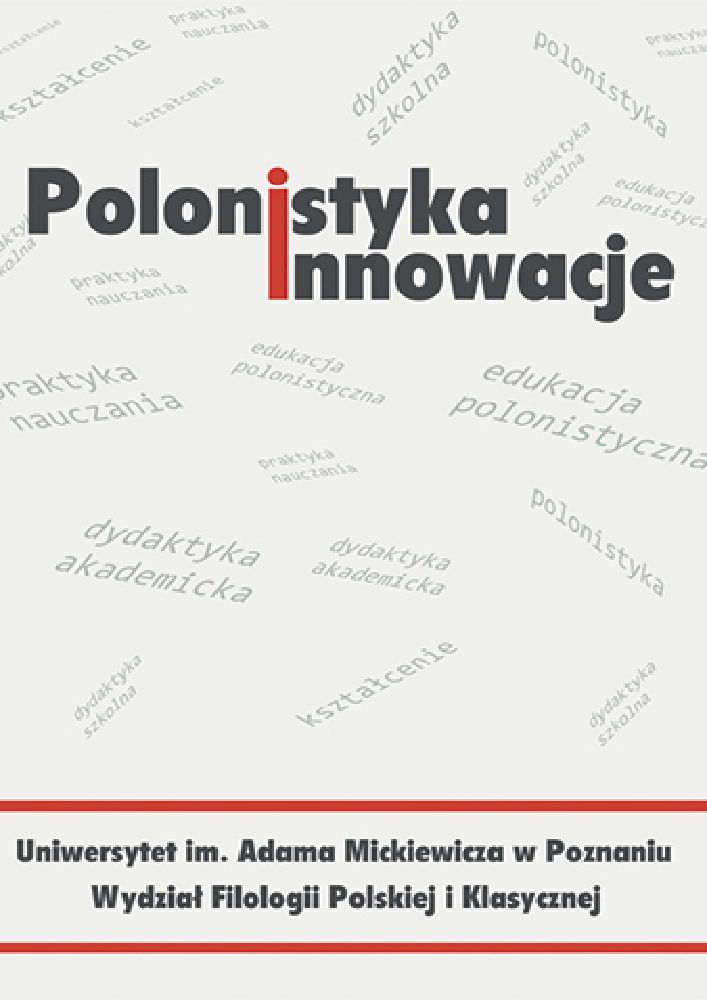Abstract
The article presents several contemporary European solutions to the problem of mass, state-organized schooling and education, in terms of educational aims and general philosophy of teaching. A brief overview of the Norwegian, Finnish, Swedish, Irish and Scottish curricula shows that one can distinguish three fundamental tendencies in contemporary education, as far as highly developed, democratic countries are concerned. These tendencies are: supporting the core democratic values; crossing the borders of subject teaching in favor of holistic developing of competencies, attitudes and dispositions, and encouraging to activity and creativity in various fields of life. Gert Biesta defines this model as world-centered, we can also call it life centered – in contrast to the content-centered paradigm of polish curriculum. World-centered education creates the space of developing the key existential competencies like cognition, interpreting of different phenomena, building the self-identity and relations with others, active approach to the world. This is also the process of initiating and revealing the subjectivity of a human being.
References
Basic Education Act, https://www.finlex.fi/en/laki/kaannokset/1998/en19980628.pdf (dostęp: 21.10.2021).
Biesta Gert, 2016, The Beautiful Risk of Education, London and New York.
Cook Charlie, It’s the Education, Stupid, https://cookpolitical.com/analysis/national/national-politics/its-education-stupid (dostęp: 18.10.2021).
Core curriculum – values and principles for primary and secondary education, https://www.regjeringen.no/contentassets/53d21ea2bc3a4202b86b83cfe-82da93e/core-curriculum.pdf (dostęp: 20.10.2021).
Curriculum for Excellence, Literacy and English. Experiences ad Outcomes, https://education.gov.scot/Documents/literacy-english-eo.pdf (dostęp: 2.11.2021).
Curriculum for the compulsory school, preschool class and school-age educare, REVISED 2018, https://www.skolverket.se/getFile?file=3984 (dostęp: 20.10.2021).
Dewey John, My Pedagogic Creed, http://dewey.pragmatism.org/creed.htm (dostęp: 19.10.2021).
Edukacja, głupcze! Rozmawiają Jerzy Hausner i Mateusz Zmyślony, „Miesięcznik Społeczno-Kulturalny Kraków”, listopad 2020, https://www.miesiecznik.krakow.pl/teksty-z-miesiecznika/edukacja-glupcze/ (dostęp: 18.10.2021).
Junior Cycle English, https://www.curriculumonline.ie/getmedia/d14fd46d-5a10-46fc-9002-83df0b4fc2ce/JuniorCycle_-English_-specification_amended_2018.pdf (dostęp: 24.10.2021).
Komeński Jan Amos, 1931, Wielka dydaktyka (w skrócie), Banszel J. (przeł.), Warszawa.
National Core Curriculum for Basic Education 2014. Publications 2016:5, 2016, Helsinki.
Scotland’s Curriculum for Excellence. Scotland’s Approach, https://scotlandscurriculum.scot/3/ (dostęp: 25.10.2021).
Sławek Tadeusz, 2019, Alicja, czyli o co chodzi w uczeniu, w: Kształcenie nauczycieli. Wyzwanie i zaangażowanie, Bobiński W., Sujecka-Zając J. (red.), Kraków.
Tierney John J., „It’s the Education, Stupid”, https://www.iwp.edu/faculty/john-j-tierney-jr/ (dostęp: 18.10.2021).
Tomaszewska Grażyna, 2021, Przeciw gotowym odpowiedziom. Literatura i dydaktyka literatury w czytelniczych spotkaniach, Gdańsk.
Żegnałek Jan, Dydaktyka Jana Amosa Komeńskiego, https://repozytorium.uph.edu.pl/bitstream/handle/1133/3236/Zegnalek.K.Dydaktyka_Jana_Amosa_Komenskiego.pdf?sequence=1 (dostęp: 20.10.2021).

